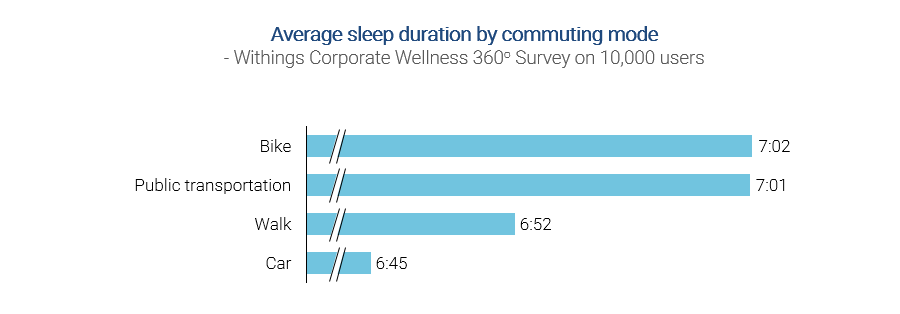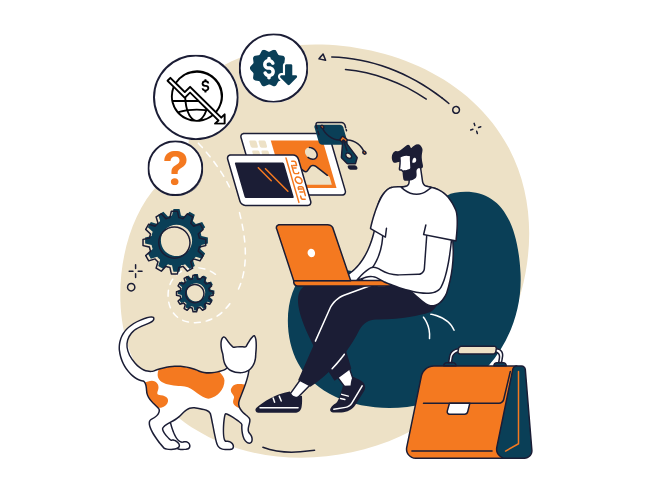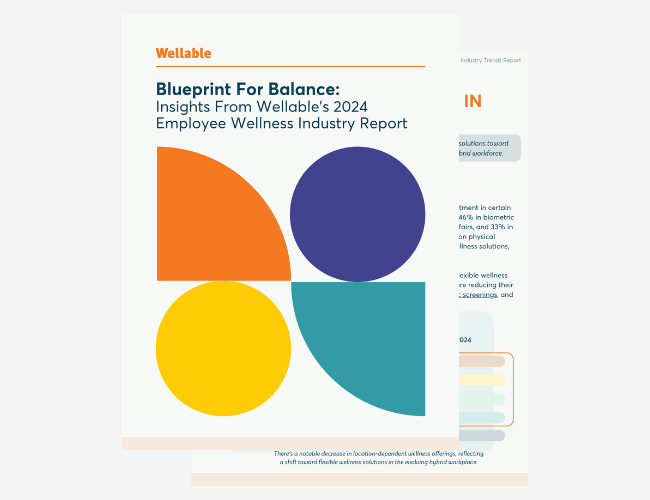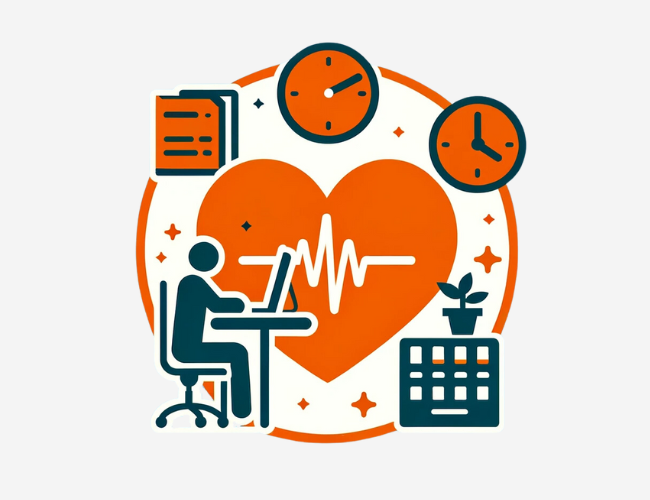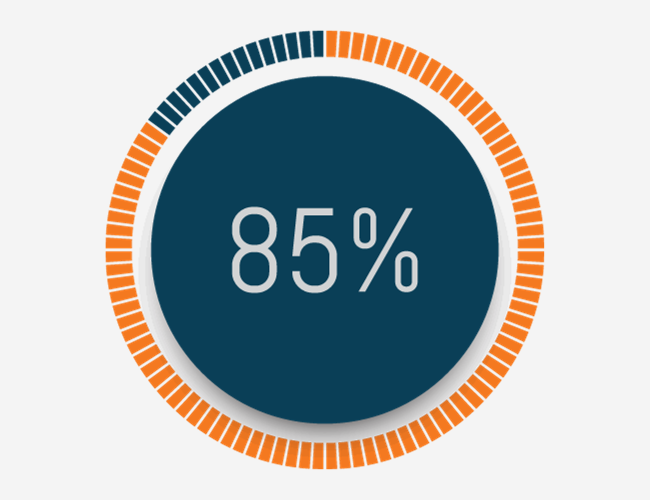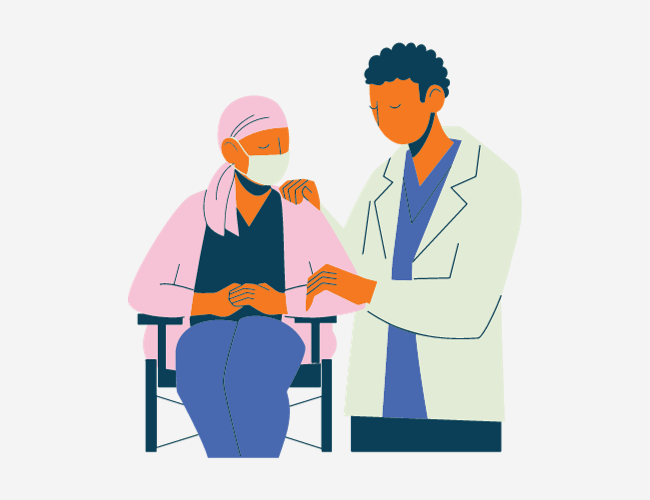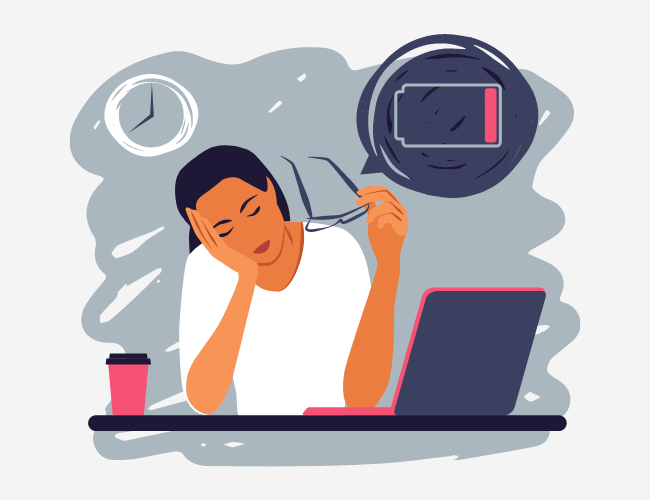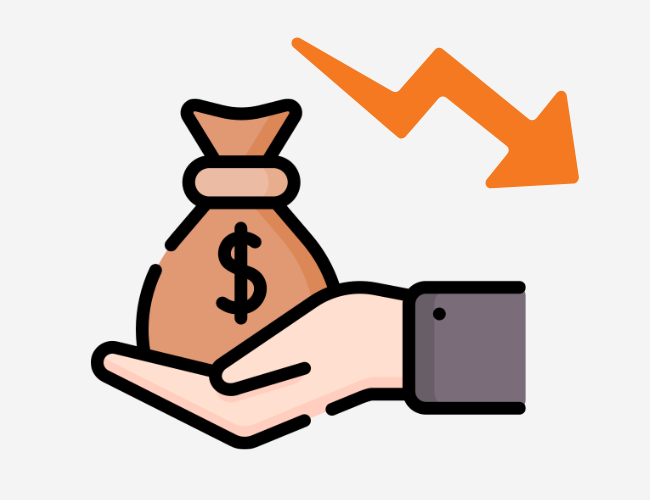Employee sleep quality has a real economic impact on the bottom line. Research showcased from the National Institute of Health highlights poor sleep increases the risk of obesity and diabetes, hypertension, and heart diseases, and the National Sleep Foundation estimates that sleep disorders cost the economy more than $100 billion dollars per year, a burden mostly for corporations because of lost productivity, medical expenses, and sick leave.
Fortunately, data analysis from 10,000 users published by Withings highlights specifics around employee sleep patterns and provides insights on areas that employers can focus on to improve the health and productivity of their employees. For starters, it’s clear that work adversely impacts sleep and stress levels. The data shows that employees typically sleep 40 minutes less per day than on weekends, which work is costing employees more than three hours of sleep per week.
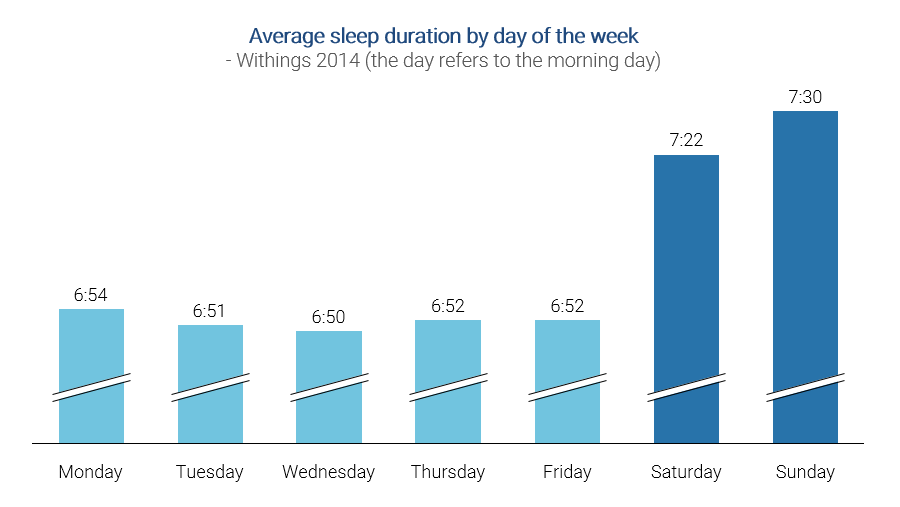
Couple this information with the Withings Corporate Wellness 360o study and one will discover that employees with the lowest sleep duration have significantly higher work-related stress levels. Specifically, employees who sleep more than 7 hours per day are three times as likely to declare not feeling stressed by their jobs vs. employees who sleep less than 5 hours per day.
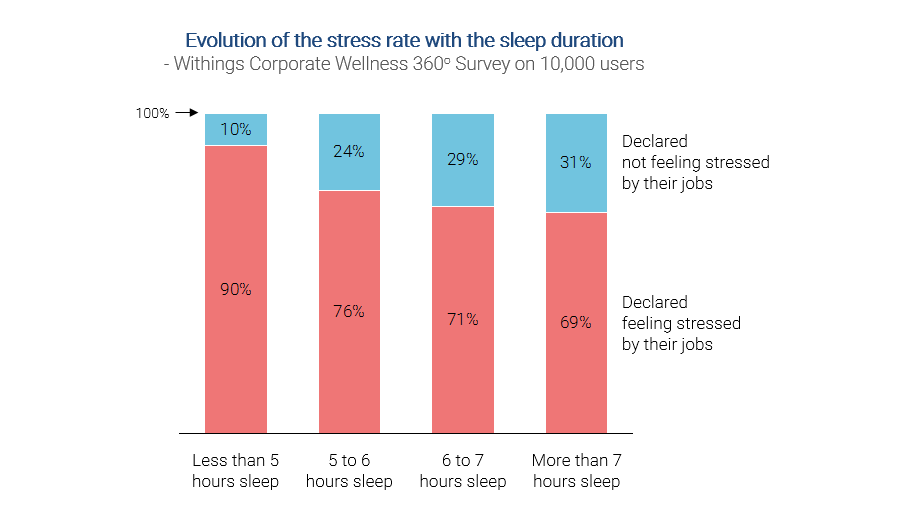
So what can employers do about it? According to the Withings data (and lots of other research), employees have improved quantity and quality of sleep on days with physical exercise. As evidenced by the chart below, exercise leads to longer sleep duration and fewer mid-night wake-ups. With this is mind, employers who promote and support employees in being physically active will also improve sleep quality (and other things as well).
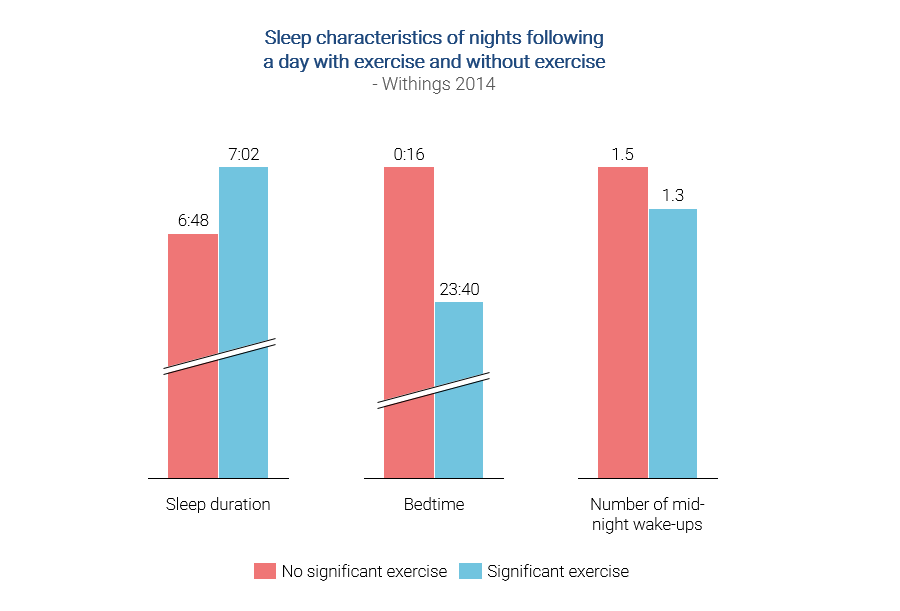
The data also shows that trends lay in the mode of transportation to and from work. Employees who bike/walk to work or take public transportation tend to sleep longer than those who drive to work. Although it is hard to move an office location, providing meaningful commuter options and/or thinking about office location from a health and wellness perspective can clearly have a big impact.
